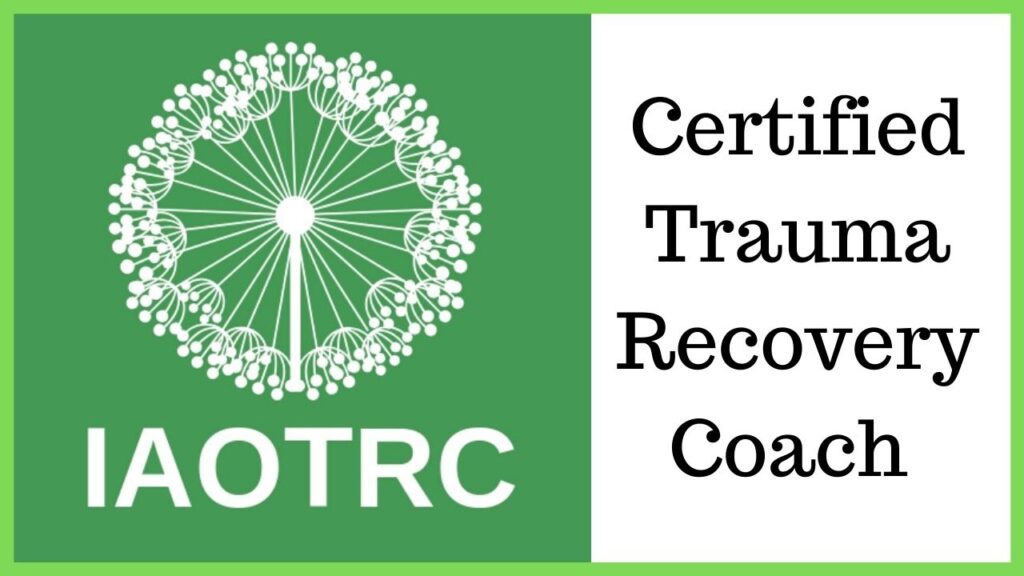What is trauma recovery coaching?

Childhood trauma doesn’t always stay in the past. Trauma Recovery Coaching can help.
The practice of Trauma Recovery Coaching is one of understanding the presence of past trauma in your present-day experience and supporting you through the process of healing. Trauma Recovery Coaches anchor their work in the present, not specifically on the past trauma. We do not pathologize the trauma responses you may have. Therefore, our goal is to utilize support strategies to help you recognize your strengths, and develop positive coping strategies rather than just extinguishing “negative” behaviors and beliefs.
We serve as guides, peers, mentors, and supporters. Importantly, we also provide education about complex trauma and recovery while supporting the recovery goals you set. Above all, sessions are always client-led. We are not therapists. We don’t label what you are experiencing as wrong or bad. Instead, we believe that you are having normal reactions to trauma – which are abnormal experiences. We believe that you have responded to trauma in ways that you believed were in service to your survival.
The Difference between therapy and trauma recovery coaching
The primary difference between a therapist and a coach is that, generally speaking, therapists tend to focus more on the past or present while coaches tend to focus more on the present and the future.
Therapists are a resource for mental health care. They operate under a medical model of care, whereas Trauma Recovery Coaches operate under a support model. Therapists work with and treat trauma. Trauma Recovery Coaches, do not treat the actual trauma. They provide support and psychoeducation on recovery from the effects of trauma showing up in your present life and how to find resilience and solution-forward strategies. Trauma Recovery Coaching is on par with Trauma Therapy as is explained here.
Often, people will need therapy, as well as a coach to support them in between sessions. Other times, clients have a baseline of working with the trauma but need further support to make positive changes in the present.
Does one or more of these statements resonate with you?
- You feel like something is “wrong” with you or that you’re damaged.
- You feel a falseness: on the outside, you appear to have it all together, but inside, you feel hollow, hopeless, hurt, or unhappy.
- You frequently experience emotional dysregulation – negative emotions feel intense, out of control, or overwhelming.
- You struggle with anxiety, depression, detachment from others, or panic attacks.
- You find that you are a “people pleaser” so you have difficulty setting and holding boundaries, often neglecting your own needs.
- You know your childhood trauma is keeping you feeling stuck from enjoying a happier life. Here are some symptoms:
- Reliving the events (flashbacks or nightmares)
- Anxiety, depression, anger, problems with trust, self-destructive or risky behaviors, and withdrawal.
Your struggle is real. I see you. I hear you.
Maybe you’ve tried to use positive affirmations as a balm for those negative thoughts. Maybe you’ve sensed that your relationships are being impacted by your ever-present depression or anxiety. And maybe you’ve been afraid to go after certain opportunities and aren’t quite sure why. You’re sick and tired of feeling on edge and then numbing out. Let me tell you that your struggle is real and I see you.
It seems that everyone is talking about mental health these days. But few understand complex trauma. Complex trauma isn’t a one-time event but rather repeated exposure to traumatic events (such as multiple events with interpersonal threats during childhood or adolescence.) Such events may include abuse, neglect, interpersonal violence, community violence, racism, discrimination, and war. and the ways those traumas continue to affect that child over the entire course of their life.
Are you overwhelmed by past experiences that keep you from truly connecting with others?
Many professionals struggle with emotional hurdles that can hinder their development and relationships. If you find it hard to be present at work or foster authentic connections, take heart—you’re not alone.
Consider this scenario:
- You’re at a team meeting, but your mind drifts back to unresolved feelings from the past.
- You know how it affects your interactions, yet feel helpless to change it.
- Every attempt to push through is exhausting and often leads to even more frustration.
After all your efforts, you might end up feeling stuck and unfulfilled. It’s not just you; many have discovered that conventional methods touch only the surface of the healing needed.
This isn’t your fault. Emotional healing is often misunderstood.
Even those trained in psychology can feel overwhelmed by their own trauma. We all face this challenge, but there truly is another way forward.
What if you could embrace your past and build stronger connections today?
Imagine a life where your emotional scars no longer dictate your interactions. Here’s what that could look like:
- You walk into meetings with confidence, ready to share your valuable ideas.
- Your relationships with colleagues blossom, grounded in authenticity.
- You tackle challenges head-on, using your past as a strength rather than a burden.
Your emotional well-being can reshape the trajectory of your career.
Imagine developing powerful tools to manage your feelings, ultimately enhancing your effectiveness. That’s the transformation waiting for you.
It’s not simply about ‘moving on’—it’s about understanding your story.
The advice you’ve received about overcoming emotional barriers often misses a crucial point: addressing trauma isn’t linear. Rather than just pushing through or getting over it, real healing involves acknowledging your experiences.
This revelation changed everything for me. I realized that each experience adds depth to my understanding. Just because something happened doesn’t mean it has to define you.
By embracing your story, you’re not just surviving; you’re thriving. This passage goes beyond traditional therapy—it’s about integrating your history into your narrative.
Working with a Trauma Recovery Coach
Trauma Recovery Coaches are trained mental health professionals who help you to discover your path to healing. We’re also survivors of trauma who have been on their own journeys of healing. When you work one-on-one with a Trauma Recovery Coach you will find yourself in a safe, welcoming, nonjudgmental place where you can learn ways to live a happier life.
Please visit my appointment page to schedule your free exploration session to see if we can work together successfully. I am here to help.





